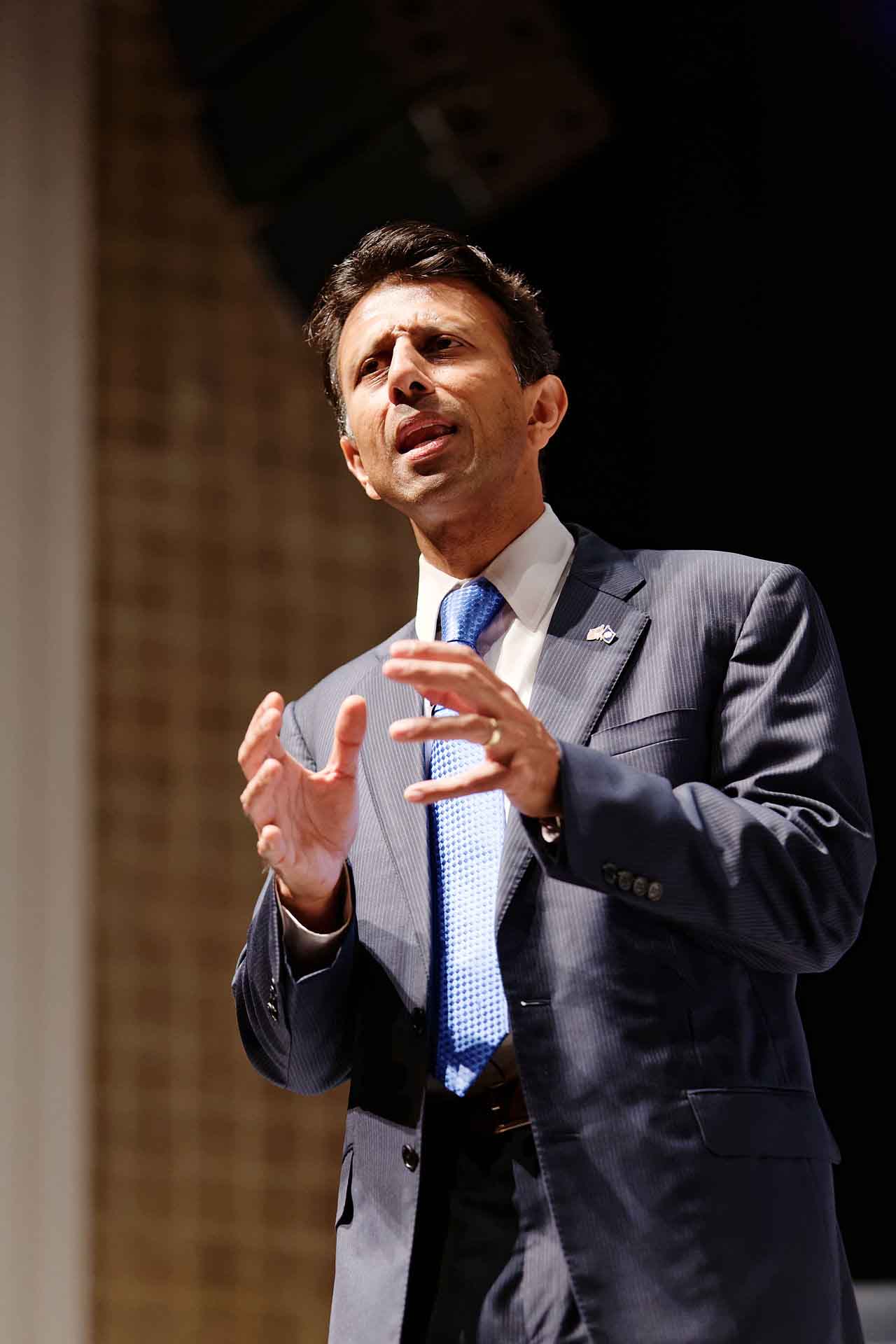
Wikimedia Commons
At the Yale Political Union’s first debate of the year Tuesday night, Bobby Jindal, former Louisiana governor and 2016 presidential candidate, argued against a single-payer health care system.
During his 30-minute speech in Woolsey Hall, Jindal, who served as assistant secretary for the Health and Human Services during the Bush administration, opposed the notion that a universal health care system would benefit Americans. As Louisiana governor, Jindal refused to expand Medicaid coverage under the Affordable Care Act and has been a vocal proponent for repealing Obamacare. The YPU debate attracted several hundred students and New Haven residents.
“A one-size-fits-all approach doesn’t work for health care,” Jindal said.
He presented four reasons for rejecting “Medicare for all,” asserting that single-payer health care is economically unsustainable. He added that this system would inflict unnecessary inconvenience on the 160 million Americans who already have private health insurance, increase government interference in medical treatment and result in lower-quality care.
Citing his experiences as a father, Jindal emphasized that high-quality health care is a “fundamental human right.” Jindal’s second son was born with a heart condition that required him to undergo open-heart surgery at three months old, he said.
“It doesn’t matter if you’re a liberal or a conservative, it doesn’t matter if you’re a Republican or a Democrat, all you want is for your little baby to be better,” Jindal said.
Jindal, who holds degrees from Brown University and Oxford University, ended his speech with an alternative to single-payer health care: a patient-centered system “built around principles of choice and competition.” Under Jindal’s proposal, the federal government would repeal Obamacare-era mandates on health care coverage, instead providing states with grants to control their own health care spending.
Following Jindal’s speech, David Diaz ’18, a member of the Liberal Party, argued in favor of a single-payer system as an alternative to the status quo, which he described as undemocratic and “mediocre” compared to other developed countries with similar per capita spending on health care.
If the government becomes the only buyer in the market, companies would be forced to lower costs and everyone could afford quality health care, Diaz said.
Kirthi Bellamkonda MED ’20, on the other hand, agreed with Jindal, arguing that a single-payer health care system would drive up the cost of private insurance for working Americans and create a “widening chasm” between the rich and poor.
Some attendees interviewed by the News expressed appreciation for Jindal’s humanitarian approach to the issue. Emily Rodriguez ’21, for example, said that by framing health care as a universal right, Jindal started his speech at “a place everyone could identify with.”
Kassandra Boos ’20, a member of the Independent Party, said Jindal’s personal anecdotes about obtaining treatment for his son helped fortify his argument against single-payer health care. And Anne Northrup ’21 agreed that Jindal’s stories helped break up the speech into “digestible chunks.”
Other audience members highlighted Jindal’s patient-centered approach. Christian Wolpert Gaztambide ’20, a member of the Party of the Right and YPU director of development, said he appreciated that Jindal ended his speech on a positive note by offering a better alternative to single-payer health care. Boos agreed that physicians should not be able to turn away patients based on their health care coverage, a point she said resonated with her from Jindal’s speech.
But Ariel Murphy ’18, chair of the Liberal Party, said that the governor, like other politicians who typically speak at the YPU, did not defend his beliefs strongly since staunch statements could later be used against him.
“I think he’s stuck in a capitalist system and can’t envision a future where there doesn’t have to be profit and where people’s lives don’t have to be monetized,” Murphy said.
Justin Jin ’20, a member of the Independent Party, said that while he found Jindal’s arguments nuanced and well thought out, he had difficulty hearing some of the speech due to the poor acoustics in Woolsey Hall.
Gaztambide expressed relief that Jindal spoke solely on the resolution and “left the political bile back in Washington.”
Before serving as Louisiana governor, Jindal served as Republican congressman for two terms.
Alice Park | alice.park@yale.edu







